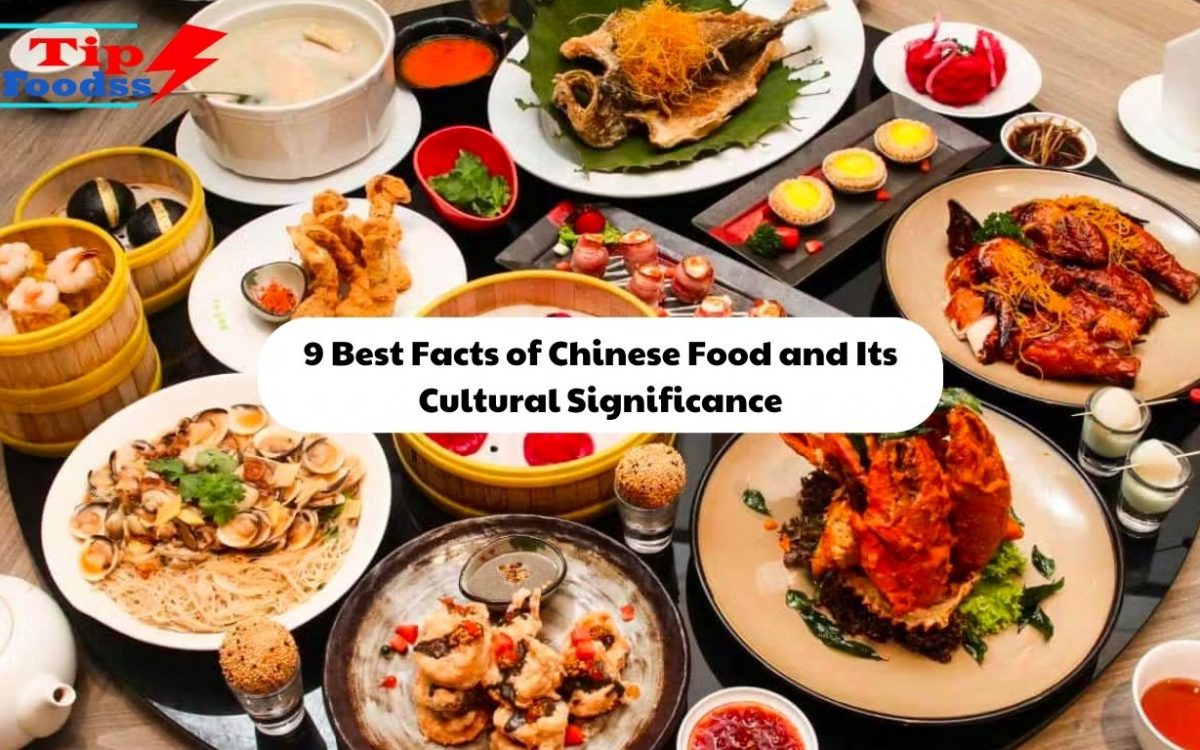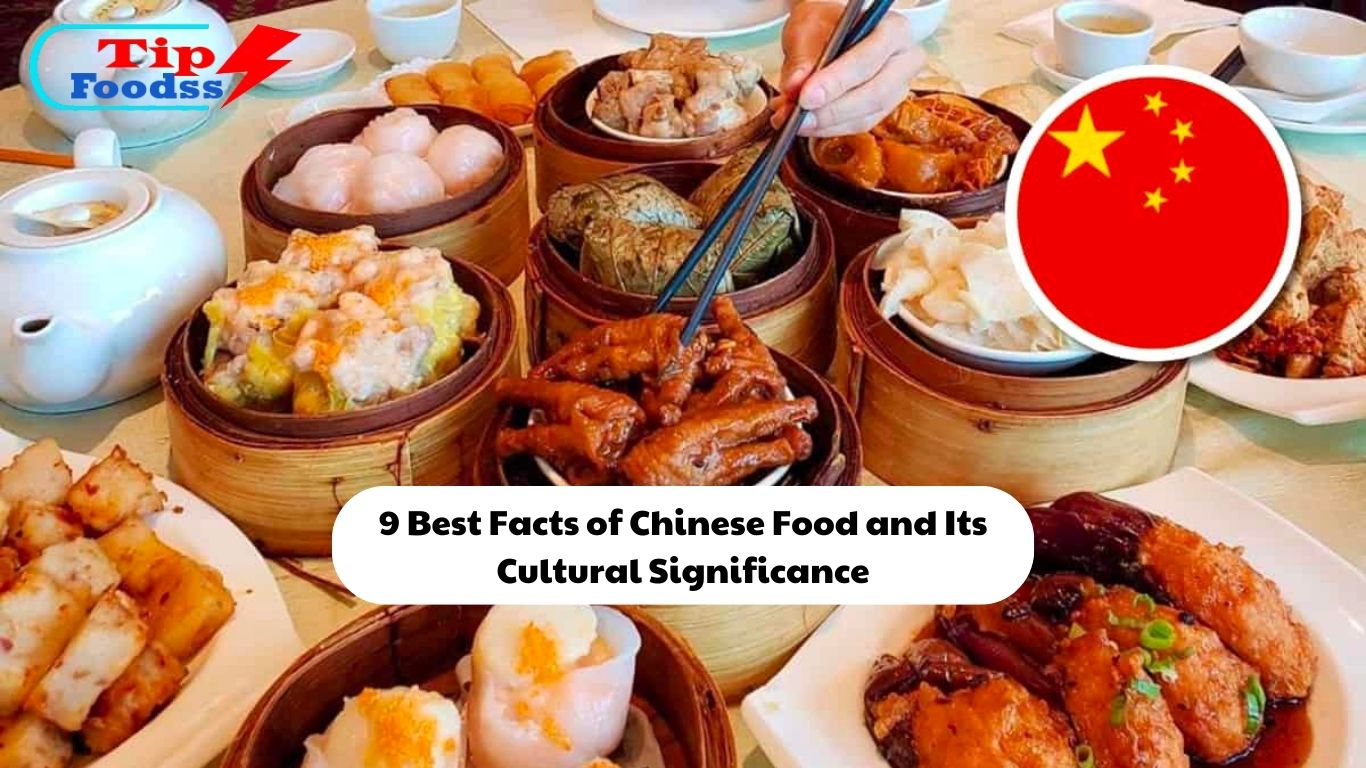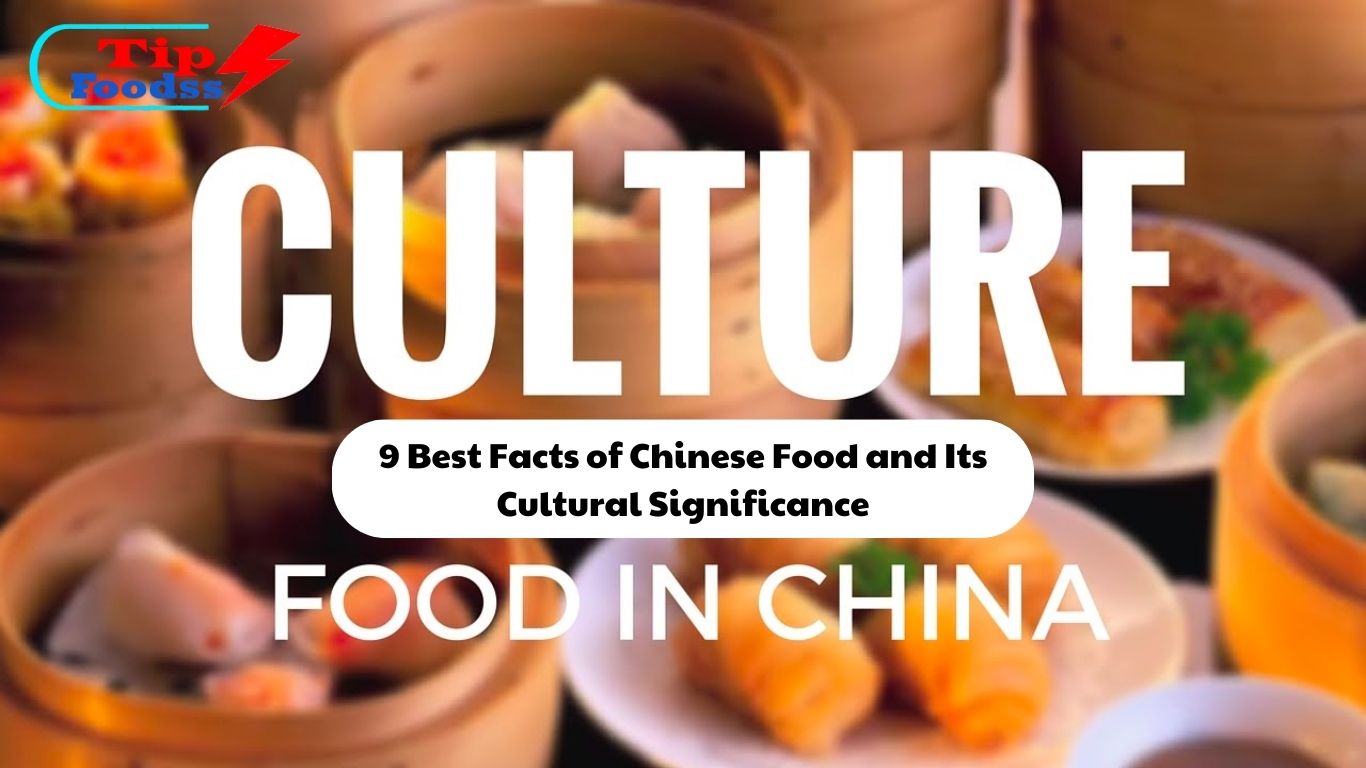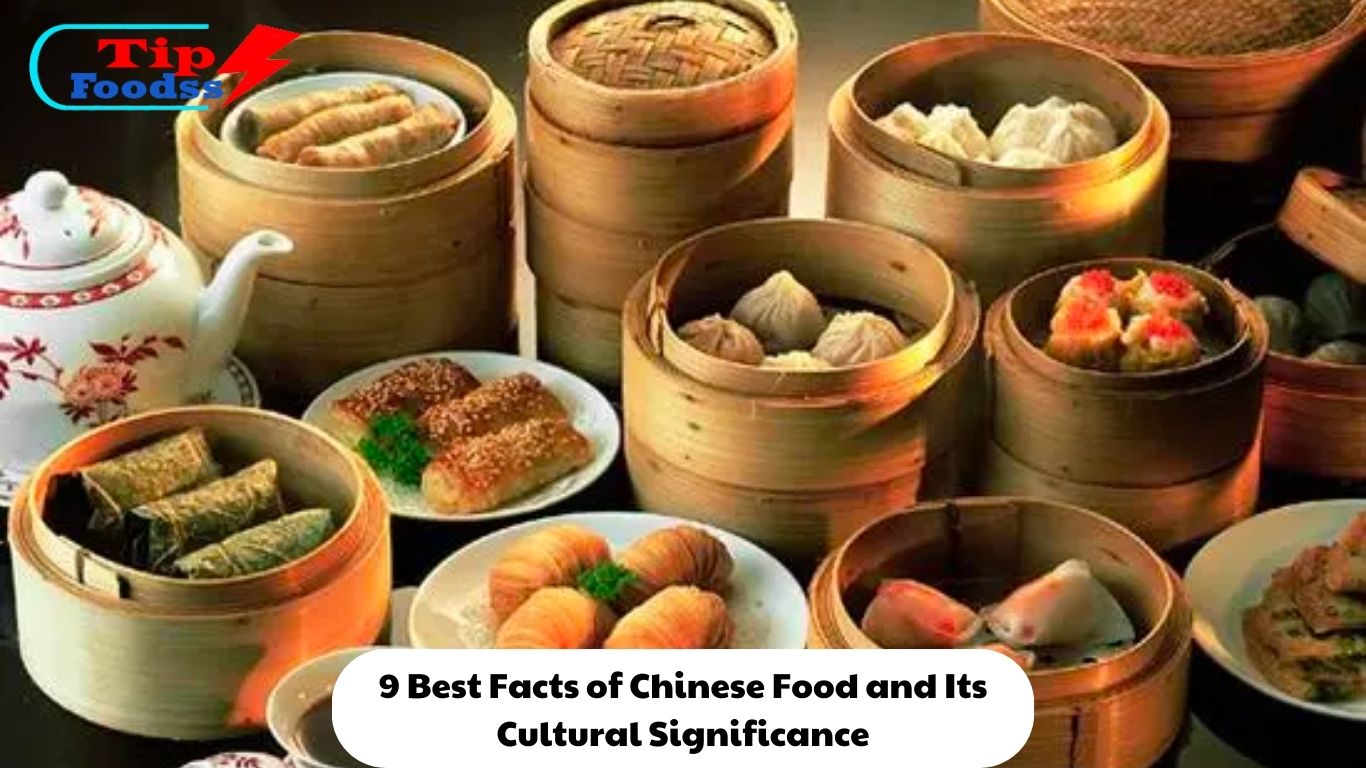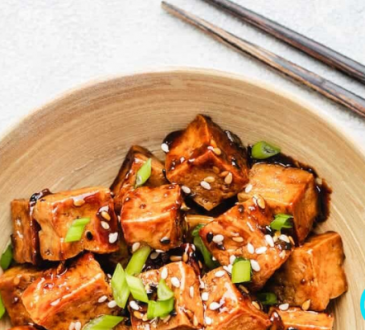9 Best Facts of Chinese Food and Its Cultural Significance
Chinese cuisine has been cherished and admired for a very long time. People all know that its food is rich in history and cultural value. Chinese cuisine is an integral component of Chinese culture, from the usage of certain ingredients to the preparation and presentation of dishes. Tipfoodss will look at the top nine Chinese Food and Its Cultural Significance in this post.
9 Best Facts of Chinese Food and Its Cultural Significance
Regional Variations: One of the most interesting things about Chinese Food and Its Cultural Significance is the regional variations that exist within the cuisine. Each region of China has its own unique style of cooking and flavor profile, which is influenced by local ingredients and cooking techniques. For example, the Chinese Food and Its Cultural Significance of Sichuan is known for its bold and spicy flavors, while Cantonese cuisine is known for its delicate and subtle flavors.
Yin and Yang: In Chinese culture, the concept of yin and yang is important, and this is reflected in Chinese cuisine. Yin and yang refer to the balance of opposing forces, and this is reflected in the balance of flavors in Chinese dishes. Sweet and sour, salty and spicy, and hot and cold are all balanced in Chinese dishes to create a harmonious flavor profile.
The Five Flavors: In Chinese cuisine, there are five basic flavors: sweet, sour, salty, bitter, and umami. Each of these flavors is believed to correspond to a different organ in the body and to promote good health when consumed in balance.
The Importance of Rice: Rice is a staple ingredient in Chinese cuisine and is used in a wide variety of dishes. It is an important part of Chinese culture and is often served at important occasions such as weddings and festivals.
The Role of Tea: Tea is an important part of Chinese culture and is often served with meals. It is believed to aid in digestion and to have other health benefits.
The Art of Dim Sum: Dim sum is a style of Chinese cuisine that involves small, bite-sized portions of food served in steamer baskets or on small plates. It is a popular style of dining in China and is often enjoyed with tea.
The Significance of Noodles: Noodles are another staple of Chinese cuisine and are often served in soups or stir-fried dishes. They are believed to symbolize longevity and are often served at birthdays and other important occasions.
The Role of Food in Festivals: Food plays an important role in Chinese festivals and is often used to symbolize different things. For example, mooncakes are traditionally eaten during the Mid-Autumn Festival to symbolize the full moon.
The Symbolism of Color: In Chinese cuisine, different colors are used to symbolize different things. Red is a symbol of good luck and is often used in festive dishes, while green is a symbol of health and vitality.
The Cultural Significance of Chinese Food
Chinese food is not just about the taste, but it is also about the cultural values and beliefs that are deeply embedded in the cuisine. Here are some additional insights on the Chinese Food and Its Cultural Significance:
Family Values: In Chinese culture, food is often associated with family values. Meals are an important time for families to gather and share stories and experiences. Chinese Food and Its Cultural Significance: Family-style dining is common in Chinese cuisine, where dishes are served in large portions and shared among everyone at the table.
Symbolism: As mentioned earlier, Chinese cuisine is often associated with symbolism. For example, fish is a popular dish during Chinese New Year as it is believed to symbolize abundance and prosperity. The number eight is also considered lucky in Chinese culture, so dishes with eight ingredients or served in groups of eight are often served during festive occasions.
Balance and Harmony: Chinese Food and Its Cultural Significance is known for its balance and harmony in flavors, textures, and colors. This is a reflection of the Chinese philosophy of yin and yang, which emphasizes the importance of balance and harmony in all aspects of life.
Health Benefits: Many Chinese ingredients and dishes are believed to have health benefits. For example, ginger is known for its anti-inflammatory properties, while green tea is believed to promote heart health and aid digestion. Chinese Food and Its Cultural Significance focus on using ingredients for their health properties is a reflection of the Chinese philosophy of using food as medicine.
Culinary Techniques: Chinese cuisine is known for its intricate culinary techniques, such as stir-frying, steaming, and braising. These techniques have been developed over thousands of years and are a reflection of the importance of food and cooking in Chinese culture.
Conclusion
In conclusion, Chinese Food and Its Cultural Significance is a cuisine that is steeped in tradition and cultural significance. From the regional variations to the use of certain ingredients and the symbolism of color, Chinese Food and Its Cultural Significance is a reflection of Chinese culture and history. By exploring the nine best facts of Chinese food and its cultural significance, we can gain a deeper appreciation for this rich and diverse cuisine.

